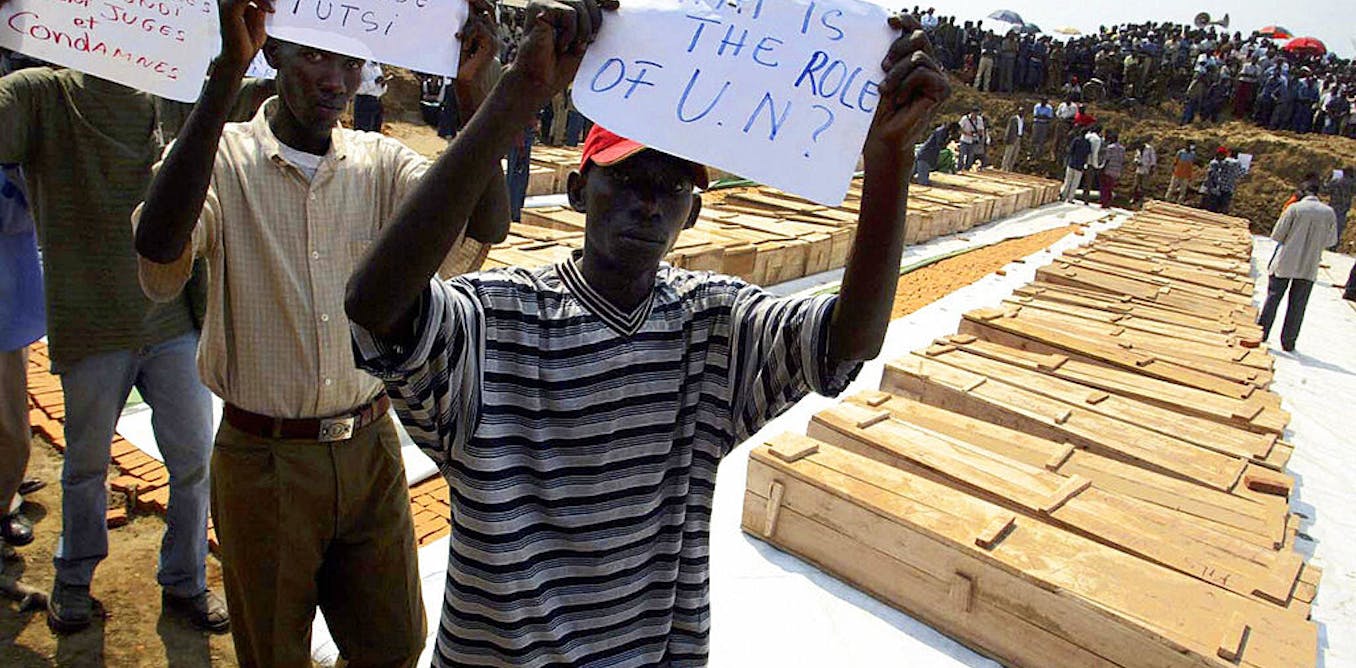Christopher Davey | Source | Visiting Assistant Professor at Binghamton University, State University of Ne...

Christopher Davey
Chris teaches Comparative Genocide, Rwandan history, Genocide and Civil War in the African Great Lakes Region, and Genocide Prevention and Conflict Transformation. His research explores the connections of genocide across DR Congo and Rwanda as well as the wider Afircan Great Lakes region, and contemporary perspectives on genocide from identity to diaspora mobilizations of genocide, and climate related violence. He specializes in working with Congolese Tutsi, or Banyamulenge soldiers to understand how experiences of genocide shape identity and narratives. He also serves as a board member and project lead for Education for Global Peace where he supports research, outreach and the global mapping of peace education. He currently teaches as Binghamton University's Institute for Genocide and Mass Atrocity Prevention (https://www.binghamton.edu/i-gmap/index.html).
-

Binghamton University, State University of New York
Visiting Assistant Professor
-
Intensifying fighting in the Democratic Republic of Congo
Binghamton University professor Christopher Davey discuses intensifying fighting in the Democratic Republic of Congo with ABC News Australia.
Article -
Report Documents Impact of 2004 Gatumba Massacre
A recent report titled "Gatumba Survivors Project" documents the lifelong impact of the 2004 massacre, which resulted in the killing of 166 Congolese at a U.N. refugee camp near Gatumba, Burundi. For more, Africa 54 host Esther Githui-Ewart spoke with Chris Davey, lead researcher for the project at Clark University in Massachusetts. #Gatumba #burundi #voaafrica - - - - - For more visit our news site, voaafrica.com Follow VOA Africa on Facebook: https://bit.ly/34fI6R5 Follow VOA Africa on Instagram: https://bit.ly/3jhzuzN Follow VOA Africa on Twitter: https://bit.ly/2HDhRME - - - - - - VOA Africa reaches more than 25 million people on the web, social media, radio and television. We deliver Africa related content in English targeted to all 54 countries in Africa and the diaspora. Our programs engage audiences on a wide variety of topics including news, politics, science, technology, health, business, sports, music and entertainment.
Article -
Burundi's Gatumba massacre offers a window into the past and future of the DRC conflict
Violence in the Democratic Republic of Congo is used to win a place in government, not to overthrow it. And it keeps working.
Article
-
For nearly three decades, the Democratic Republic of Congo (DRC) has been embroiled in violence. Millions of people have been killed and an estimated 5.6 million others displaced by civil wars, local feuds and cross-border conflicts. The neighbouring countries of Uganda, Burundi and Rwanda have been locked into this ongoing cycle, too.
The First Congo War began in 1996, with a coalition of the DRC’s neighbours supporting a rebel group that toppled the dictator Mobutu Sese Seko. Laurent Kabila was installed as head of state in 1997. A year later, however, a bloodier war began amid violent jostling for power and influence.
In December 2002, a peace deal was signed. The DRC got a national army and new constitution. Democratic elections were held in 2006, the country’s first in more than 40 years.



